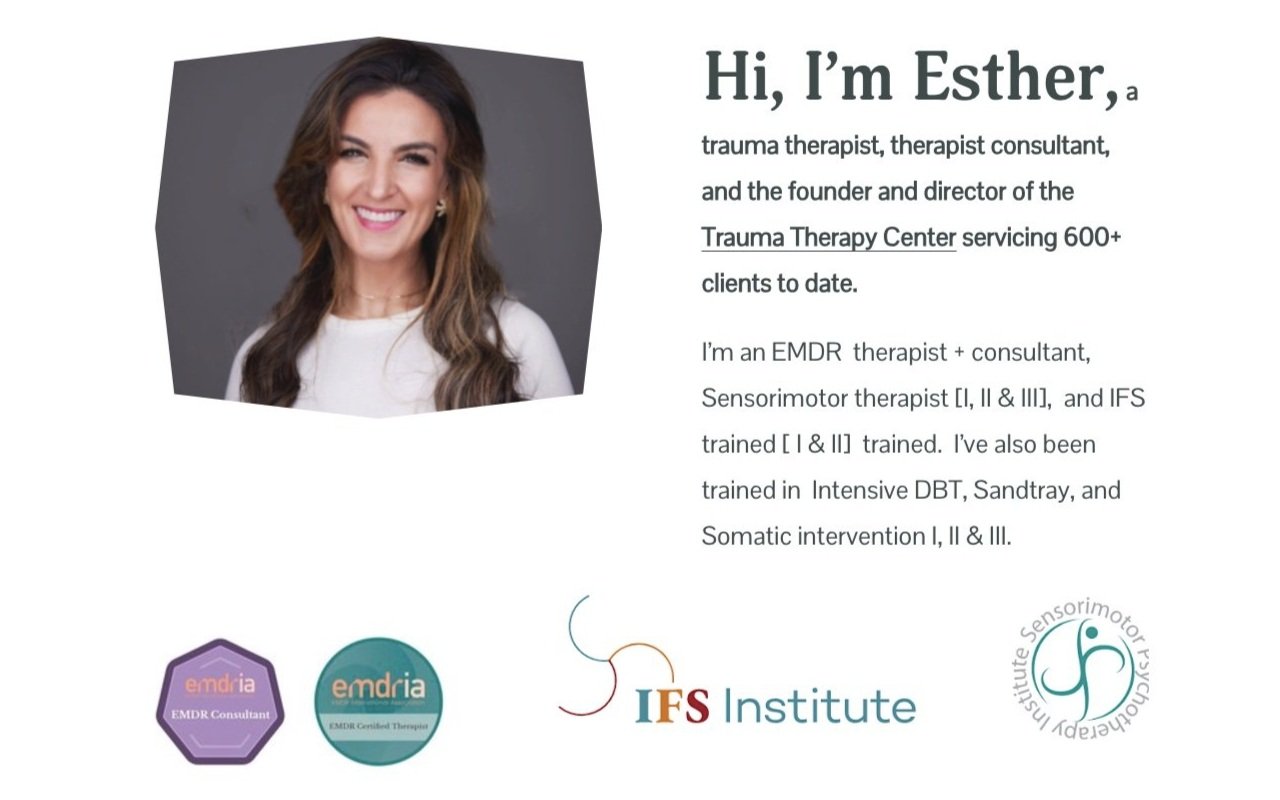The Night Before the Affair
John stood at the threshold of his front door, the weight of his decision pressing down on him. His wife, humming in the kitchen, was unaware of the storm brewing. The contrast between her warmth and the betrayal forming in his chest felt unbearable.
As he stepped out into the night, his body buzzed with anticipation. He wasn’t just going to meet someone—he was chasing something. A flicker of freedom. A moment of aliveness. A part of him was reaching for anything that could numb the deeper ache.
But by morning, the shame had returned.
Familiar.
Crushing.
The part that had taken over had gotten what it wanted—but the cost was always the same.
When a Client Is Acting From a Part
As trauma therapists, we know this moment. A client isn’t just acting out—they’re blended. Overtaken by a survival strategy so practiced, so urgent, it feels like the only option in the moment.
With John, we used Internal Family Systems (IFS) to begin mapping his parts. The impulsive, pleasure-seeking protector had a job: keep him from drowning in the ache of something he didn’t yet understand. As we stayed with that part—curious, steady—we began to hear from the exile underneath.
And through somatic work, the body revealed more than words could. Subtle constrictions, shifts in breath, a holding in the gut—these opened the door to implicit memory. Slowly, a deeper truth surfaced.
John wasn’t just escaping his marriage. He was reenacting a relational blueprint laid down in childhood.
Growing up, he had sensed rupture between his parents. Love that didn’t feel fully safe. Tension that no one talked about, but that his young body absorbed. He couldn’t name it then, but he felt it: disconnection, betrayal, silence. That early confusion—Is it safe to trust? Will love hold?—never got resolved.
Now, unconsciously, he was recreating that unspoken pain in his adult relationship.
The affair wasn’t about desire.
It was a protest.
A part of him was expressing grief and anger he never got to voice—not through words, but through action.
And so, we helped that part speak, rather than act.
Using IFS and Somatic Experiencing, we brought him into relationship with his inner system. He learned how to feel anger without being consumed by it. How to stay in conflict without fleeing. How to be in contact with his wife—and himself—without reenacting old pain.
This is what transformation looks like. Not just stopping the behavior, but healing the wound it came from.
The Nuance of Trauma Work
To do this kind of work—to stay with what’s beneath the enactment—requires more than knowledge. It demands clinical nuance: knowing when to follow the part, when to track the body, and how to help clients stay with themselves without shutting down or speeding past the moment.
It’s work that asks a lot of us. Which is why we need spaces that support us to keep growing.
Our Trauma Training Program is one of those spaces.
A training and consultation program for the Skilled Therapist Seeking More
You’ve done the trainings, invested in your clinical growth, and built strong, trusting relationships with your clients. You know how to hold space—and your clients feel it.
But some part of you is craving more.
More confidence. More clarity in the room. More steadiness when clients are deep in shame, stuck in protective cycles, or struggling to shift long-standing patterns.
Maybe you’ve trained in IFS, somatic work, EMDR, or other advanced modalities—or maybe you’ve integrated your own blend of relational, attachment, or depth-oriented approaches. This space isn’t about one “right” technique. It’s about deepening your fluency in the work you’re already doing—learning how to speak to protectors and exiles in everyday, human language that actually lands.
It’s for the therapist who wants to:
Feel more solid and spacious with complex cases
Offer parts work in a way that’s clear, grounded, and client-centered
Move more confidently through moments of shame, shutdown, or reenactment
Be part of a real community—one that’s honest, supportive, and clinically rich
Reconnect with the deeper “why” behind the work you do
If you’re in that in-between space—seasoned, but still growing—this is for you.
Meet Esther Goldstein : I’m a trauma therapist, consultant, and educator with 15+ years of experience supporting clients and clinicians. My approach weaves together Internal Family Systems (IFS), EMDR somatic trauma work, attachment theory, and a deep respect for the body’s innate wisdom.
I’ve trained with leaders in the field, and supervised hundreds of clinicians—but more than anything, I’ve sat in the room, again and again, with people doing the hard work of healing.
And I know the kind of therapist you want to be—because I’ve been there too.
This is the space I wish I had when I was stepping into the next phase of my clinical life: honest, rigorous, soulful, and grounded in real practice.
If you’re ready, I’d love to walk with you.
Let’s do the work that helps us hold others—without losing ourselves.
Looking for a deep dive into PARTS work for yourself or your clients?
I’ve created a robust IFS Mastery Bundle - with videos and an entire workbook on getting to know exiles, managers and firefighter parts. This will enrich your awareness and IFS Skills!




